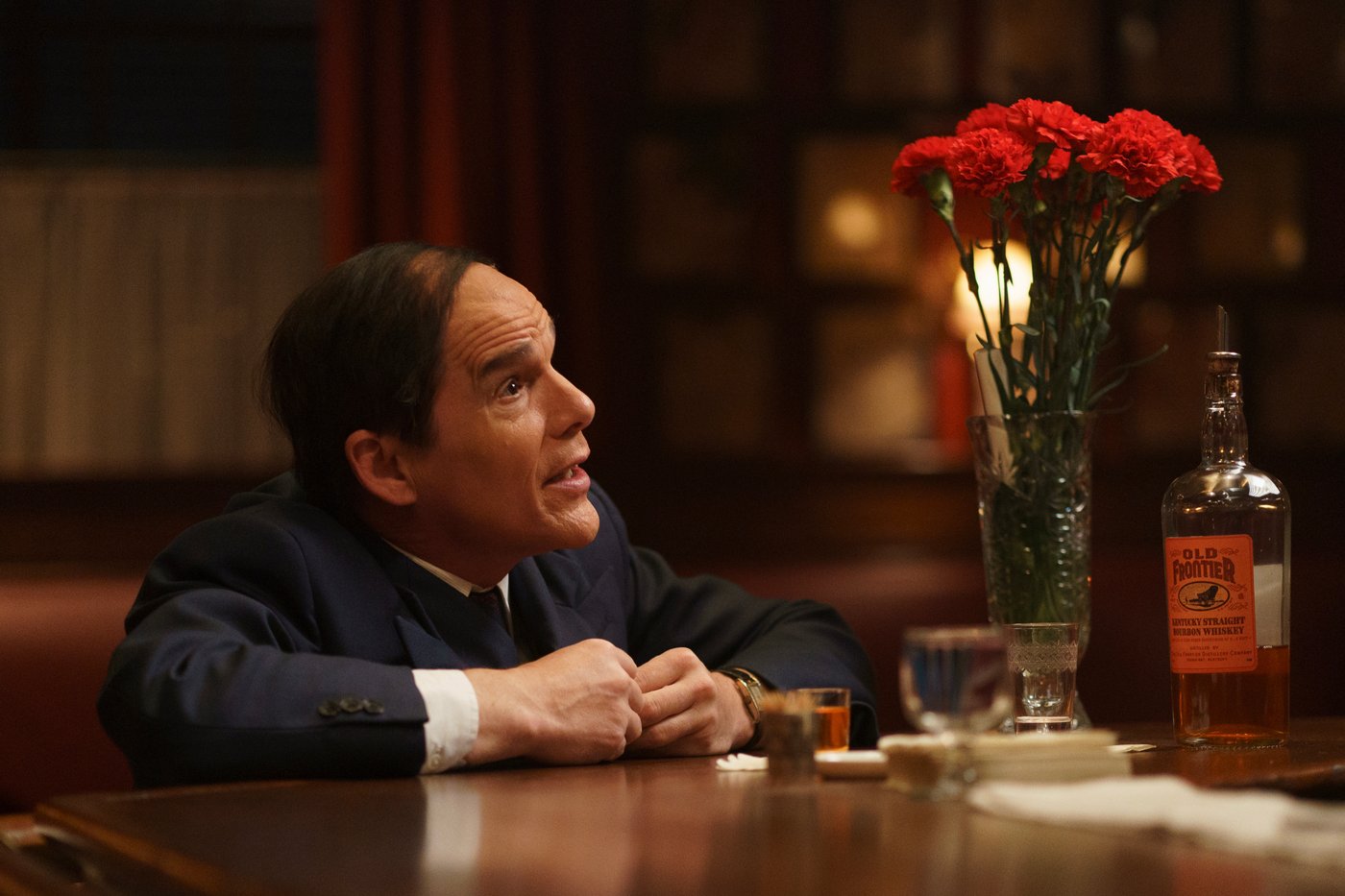Elevate your local knowledge
Sign up for the iNFOnews newsletter today!
Sign up for the iNFOnews newsletter today!
Selecting your primary region ensures you get the stories that matter to you first.

TORONTO — Ethan Hawke says he wasn’t interested in “imitating” when he took on the challenge of portraying the personal and professional collapse of real-life lyricist Lorenz Hart for the period drama “Blue Moon.”
The veteran stage and screen star says he easily recognized the anxieties and self-destructive impulses that torment Hart throughout the film, which unfolds in real-time and is nearly entirely set at the famous theatre-district restaurant Sardi’s several months before Hart’s death in November 1943.
Hawke is nearly unrecognizable as the balding, diminutive Hart, who drinks and grouses over the state of Broadway as his old writing partner Richard Rodgers is just down the street premiering a buzzy new show called “Oklahoma!” with a new collaborator, Oscar Hammerstein II.
Hawke says he was “hypnotized” by the script and the logistical challenges of playing someone who looks nothing like him and is nearly always talking and spewing witticisms, although seemingly incapable of actually confronting his innermost troubles.
“I’ve spent my life with theatre people,” Hawke explained at a press conference during the recent Toronto International Film Festival, where the film screened.
“I felt like I knew him. You know, I felt like I spent a couple of months with old Larry. I know this dude and I love him and I admire him and he breaks my heart.”
Although hailed as the lyrical genius behind some of music’s most venerated ballads – “Blue Moon” and “My Funny Valentine,” among them – Hart harboured a private pain that Hawke says makes him unlike any character he’s ever seen on film.
“There’s a great line in the movie: ‘Nobody ever loved me that much.’ He’s paraphrasing from ‘Casablanca’ but it’s clearly a mantra of somebody who cannot feel or absorb love from other people,” says Hawke, summarizing the story arc as watching “a person’s heart break so much that they’re going to die.”
“And he doesn’t feel it’s reciprocal, the love that he’s giving. I think he’s in a tremendous amount of pain about that. He’s also wildly confused,” he adds, referring to Hart’s closeted sexuality and a relationship he pursues with a young protege, played by Margaret Qualley.
Bobby Cannavale, who appeared off-Broadway with Hawke in a 2005 production of “Hurlyburly,” co-stars as a bartender who offers a soft landing for Hart’s jokes and gripes, while Andrew Scott plays Rodgers and Simon Delaney is Hammerstein.
“Blue Moon” director Richard Linklater notes the story is also peppered with “fanciful” encounters involving historical figures who might have dropped by the after-party, among them “Stuart Little” author E.B. White and a young Yale student meant to be George Roy Hill, before he directs 1969’s buddy classic “Butch Cassidy and the Sundance Kid.”
Linklater says he was interested in exploring the demise of an artistic career, supposing that the fruitful Rodgers-and-Hart partnership ends not for lack of talent, but because of Hart’s alcoholism and inability to address personal demons.
“He’s probably never sober another day,” Linklater suggests of what comes after that momentous night.
Linklater says he and Hawke began discussing the script more than a decade ago, but didn’t immediately assume they would team up for the project, just the latest in a string of partnerships, including the “Before” trilogy of films.
Hawke says they began to consider it seriously in recent years as they mused on the cinematic potential of telling a story in real-time, in one location.
They made a point of using old-school staging tricks to transform Hawke into the five-foot-tall Hart, largely achieved through body movements and forced camera perspectives. Hawke also shaved the crown of his head and grew out the sides to achieve a severe comb-over.
The way Hart looked was a key part of his character, Hawke says, taking a moment to lighten the mood while spelling out the way “people associate height with strength and power and sexuality.”
“Like, Bobby’s tall, but he’s really none of those positive (things),” he said, gesturing to Cannavale beside him, sandwiched by Scott.
“And we know lots of smaller people who are a lot more powerful, a lot sexier, a lot smarter,” he continued to laughter.
Linklater said he seized on a mix of dark and light moments in telling Hart’s story.
“There was something so poignant about it, sad. But like a Rodgers-and-Hart song, so witty and funny and you see his genius.”
“Blue Moon” opens in theatres Friday.
This report by The Canadian Press was first published Oct. 22, 2025.
This site is protected by reCAPTCHA and the Google Privacy Policy and Terms of Service apply.
Want to share your thoughts, add context, or connect with others in your community?
You must be logged in to post a comment.